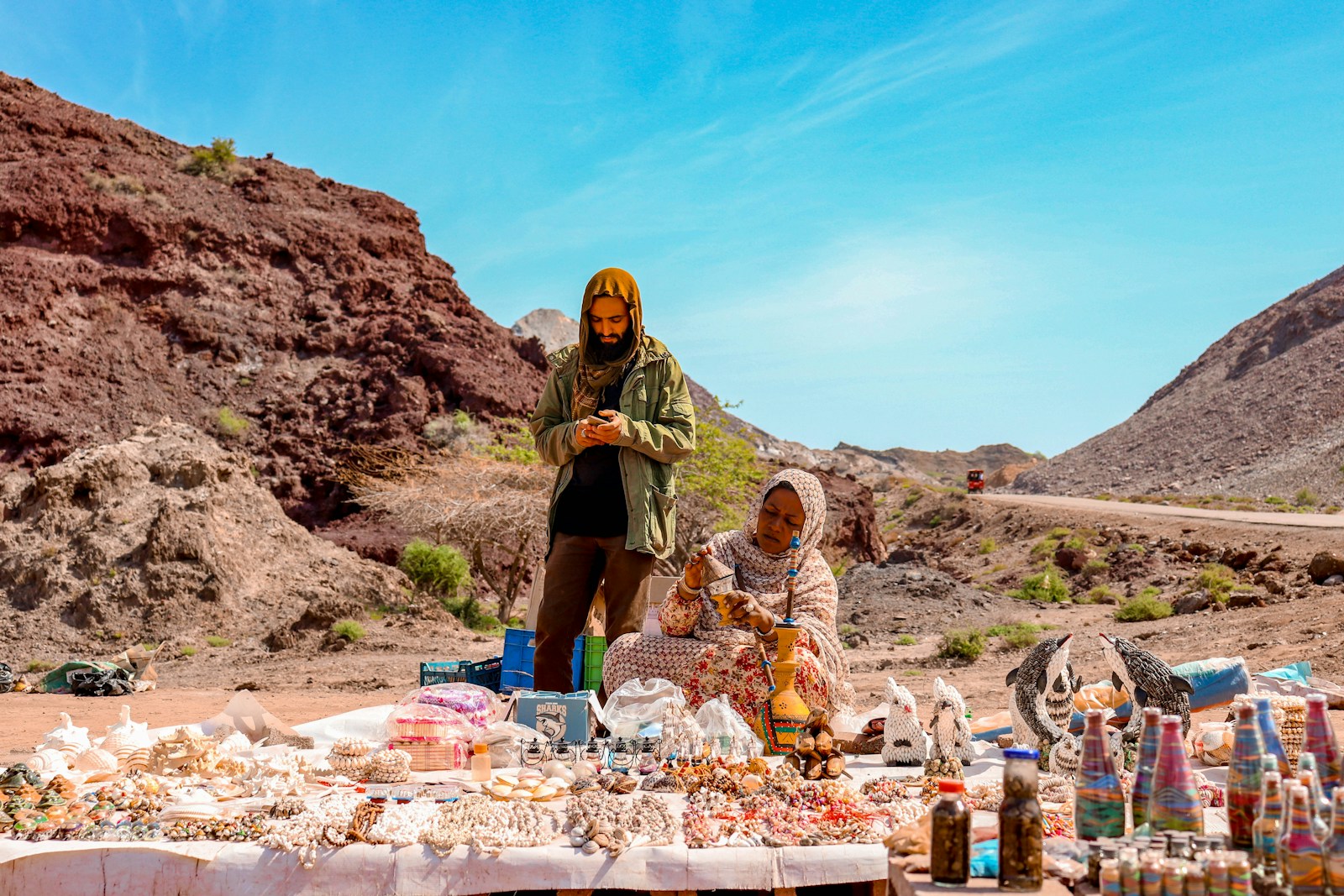Financial Struggles of Mauritania’s Women Entrepreneurs
Eighty-three percent of women entrepreneurs’ associations in Mauritania heavily rely on membership fees, which severely limits their growth potential. The lack of sustainable funding channels means that Women Entrepreneurs Funding remains insufficient to support training programs, market access initiatives, and business expansion efforts. This financial fragility highlights the urgent need for alternative funding models that can empower women-led enterprises to thrive.
Most associations lack adequate financial management expertise, with 87% of them unable to effectively plan and control their resources. As a result, Women Entrepreneurs Funding often depends on sporadic contributions or minimal membership payments, leaving many associations unable to provide consistent services for their members. This gap constrains the capacity of women entrepreneurs to scale their businesses and compete effectively in the local and regional markets.
Women Entrepreneurs Funding: Opportunities Through Financial Partnerships
Despite these challenges, there are significant opportunities to strengthen Women Entrepreneurs Funding through strategic partnerships with financial institutions. Only 29% of associations currently maintain collaborations with banks or microfinance organizations, but these relationships could unlock access to affordable loans, grants, and technical assistance. Well-structured partnerships would not only enhance funding availability but also provide mentorship and guidance for sustainable business growth.
Securing reliable financial support enables women entrepreneurs to plan long-term strategies, invest in capacity-building initiatives, and develop scalable business models. By leveraging such partnerships, associations can increase their operational efficiency, improve service delivery to members, and create a foundation for more resilient and impactful women-led enterprises.
Women Entrepreneurs Funding: Socio-Economic Impact of Well-Funded Associations
Access to sustainable Women Entrepreneurs Funding transforms the economic landscape for women-led organizations in Mauritania. Properly funded associations can facilitate training, mentorship programs, and networking opportunities, which in turn boost job creation and community development. Financially empowered women entrepreneurs are better positioned to drive economic growth, contribute to social progress, and act as catalysts for broader societal change.
Ultimately, consistent and reliable funding enables women’s associations to move from mere survival to thriving, fostering inclusive development and setting a replicable example for other African nations seeking to enhance the role of women in the economy.
Women Entrepreneurs Funding: Bridging the Funding Gap for Women Entrepreneurs
One of the most pressing challenges facing women-led businesses in Mauritania is the lack of diversified Women Entrepreneurs Funding. Associations relying solely on membership fees are constrained in their ability to expand operations, organize training programs, or provide meaningful support to members. This overreliance underscores the necessity for innovative financing mechanisms, such as grants, equity partnerships, and venture funding tailored to women entrepreneurs’ unique needs.
Introducing structured financial programs can reduce dependency on irregular income sources and empower associations to plan and execute long-term strategies. With enhanced Women Entrepreneurs Funding, associations can invest in skill development, mentorship programs, and market access initiatives, allowing women entrepreneurs to grow their enterprises sustainably and compete regionally and internationally.
Success Stories and Best Practices Across Africa
Across Africa, successful models of Women Entrepreneurs Funding demonstrate the transformative potential of targeted financial support. Programs like the African Development Bank’s Affirmative Finance Action for Women in Africa (AFAWA) have successfully channeled over $1.2 billion to women-led businesses. These initiatives provide not only financial assistance but also training, networking, and advisory services that strengthen associations’ capabilities and help women entrepreneurs navigate complex business environments.
By adopting lessons from these best practices, Mauritanian associations can implement tailored financial strategies, create strategic partnerships with financial institutions, and access regional and international funding opportunities. Such approaches enhance the stability and sustainability of Women Entrepreneurs Funding and foster a more inclusive and resilient entrepreneurial ecosystem.
Building a Sustainable Future for Women Entrepreneurs
Long-term sustainability of Women Entrepreneurs Funding requires a multifaceted approach, combining financial literacy, capacity-building, and strategic partnerships. By reducing overreliance on membership fees and actively seeking alternative revenue streams, associations can ensure consistent support for their members, develop scalable business models, and expand their socio-economic impact. Strengthening the financial foundation of women-led enterprises contributes directly to broader economic development, social empowerment, and gender equality in Mauritania.
Sustainable Financing for Women Entrepreneurs in Mauritania
Women entrepreneurs’ associations in Mauritania face significant challenges in securing sustainable financing. According to a recent African Development Bank study, 83% of these associations rely primarily on membership fees, limiting their capacity to grow and provide adequate support to their members. The African Development Bank is working to strengthen partnerships with financial institutions to empower these associations and enable access to diversified funding sources.
Strategic Partnerships to Enhance Women’s Economic Role
In a move to support financing for women-led projects, the African Development Bank approved a €25.5 million grant in favor of Bank of Mauritania to support small and medium enterprises and women entrepreneurs. This partnership aims to foster inclusive and sustainable growth in Mauritania by providing essential funding for women-led initiatives.
Success Stories Inspire the Future
The WACA program provides a concrete example of successful women-led initiatives. Founded in the village of Boutidoma, this group currently includes 17 women working from their homes while balancing family responsibilities with their businesses. This initiative highlights the importance of supporting women-led projects to enhance both economic and social sustainability in Mauritania.
Building Capacity for Sustainable Growth
To ensure long-term success, women entrepreneurs’ associations in Mauritania are investing in capacity-building initiatives. Training programs focus on financial management, marketing strategies, and leadership skills, enabling women to make informed decisions and scale their businesses effectively. By strengthening internal structures and governance, these associations are better equipped to navigate financial challenges and create lasting economic impact for their members.
Encouraging Innovation and Collaboration
Innovation plays a central role in fostering resilience among women-led enterprises. Associations are exploring creative approaches to generate revenue, such as cooperative ventures, joint marketing campaigns, and leveraging digital platforms. Collaboration between associations, civil society, and government institutions further amplifies their impact, providing opportunities to share best practices, resources, and networks that can drive collective growth.
Financial Support for Women Entrepreneurs in Mauritania
Financial institutions in Mauritania are striving to strengthen their support for women-led businesses by providing funding and training. For instance, in June 2025, the African Development Bank approved a €25.5 million credit facility for the Mauritanian GBM Bank to boost commercial financing for SMEs, including women-led enterprises. This funding includes a credit line, trade guarantees, and a grant from the AFAWA program, which aims to close the estimated $42 billion financing gap faced by women entrepreneurs across Africa. Through this initiative, women-led businesses are expected to gain access to more sustainable financial resources, enhancing their capacity to grow and contribute to the national economy. Read the related article on Mauritius Biz Monitor.
Conclusion: Shaping the Future of Women Entrepreneurs
The future of Mauritania’s women entrepreneurs holds significant promise if sustainable financing and capacity-building measures continue to be prioritized. Reducing dependence on membership fees and fostering strategic partnerships can empower women-led enterprises to expand, create jobs, and contribute meaningfully to the national economy. With ongoing support, training, and collaboration, these associations can become catalysts for transformative growth, ensuring that women play a central role in shaping Mauritania’s economic landscape.




